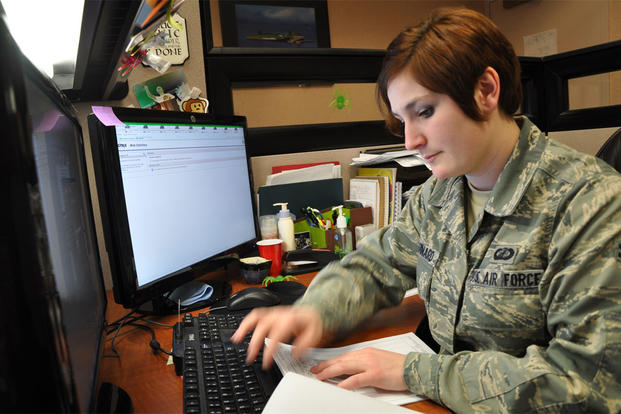WASHINGTON -- Cognitive thinking machines that can critically analyze and process information accurately and at a rate faster than human capability are the type of meta-advance technologies that Sci-Fi fanatics dream of, and the Air Force is seeking to leverage this innovative technology in the world of acquisitions.
Recently, IBM’s Watson, a cognitive computer tool that won Jeopardy! revealed just how transformative and empowering cognitive computers are to industries on a global scale. According to IBM’s website, cognitive computers like Watson are able to “fast-track life-saving research, create connections in cold cases, spark creativity, and uncover new insights at an unparalleled pace.”
Employing this same type of technology, the Air Force hopes to address the challenge of making contracting more accessible to internal and external customers. In a 2006 Government Accountability Office report, “…the challenge of operating in accordance with complex federal acquisition regulations discourages small and innovative businesses from partnering with the government in emerging markets.”
By providing an intuitive and critically thinking system that understands the complexities of requirements and flexibility within the Department of Defense contracting statutes, regulations, practices and policies, such hurdles could potentially be eliminated.
Dr. Camron Gorguinpour, Director of Transformational Innovation for the United States Air Force, Office of the Assistant Secretary (Acquisitions), is optimistic about the system. “Of course this is an initial effort; however, over time I expect these types of tools can help people in the Air Force, government and industry better navigate what is a very complex bureaucracy.”
The new application would be a benefit to program managers and contracting personnel particularly in regards to automated processes that support warfighting requirements, systems engineering and risk management. Additionally the technology would provide contracting officers with the ability to swiftly answer difficult questions thereby providing more time to effectively focus on creating agreements and other components of acquisitions.
Based on the system’s underlying algorithms, the Air Force acquisition’s cognitive computing system will access a variety of available data sources to minimize error.
“There are thousands of pages of policies, laws and regulations that affect Air Force acquisitions. We need to create a baseline platform and teach the system how to understand context so that it can answer questions accurately and become a resource that personnel can access,” said Gorguinpour.
The small business innovative research solicitation for the system is divided into three phases: developing a design that utilizes cognitive computing to provide user answers in natural language questions about the Defense contracting system, evaluating the system and finally, develop a ready-for-deployment application along with several expansion support requirements.
Gorguinpour hopes that the cognitive computing system will allow people to be more innovative in the types of acquisitions they pursue.
“It’s our aim to make this technology available to the public and industry so that everyone can have an opportunity to find creative solutions to our most challenging acquisition barriers,” he said.
Applied Research in Acoustics, LLC, in Washington, D.C., and KalScott Engineering in Lawrence, Kansas, were awarded the contract July 31 to create a natural language query system that leverages commercial sector advances in cognitive computing algorithms to provide users insights into Defense contracting statutes, regulations, practices, and policies. An application should be completed by summer 2018.



























